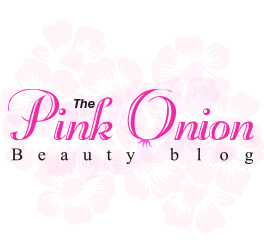Pop culture has long been a driving force behind fashion trends, shaping the way people dress and express themselves. From iconic movie characters to chart-topping musicians, popular culture icons have a significant impact on the clothing styles and accessories that become fashionable. The interconnectedness of pop culture and fashion is evident in the way trends emerge and evolve over time, reflecting the cultural zeitgeist and societal shifts. Whether it’s a celebrity’s red carpet look or a character’s signature outfit in a TV show, these influential figures have the power to inspire millions and propel certain styles into the mainstream. Understanding the influence of pop culture on fashion trends provides insight into the ever-changing landscape of the fashion industry and how trends are born, embraced, and eventually replaced.
Celebrity Style Icons
Celebrities wield immense influence over fashion trends, with their personal style often setting the tone for what’s considered fashionable. From red carpet events to everyday streetwear, celebrities are constantly in the spotlight, showcasing the latest trends and designer labels. Fashion-forward celebrities like Rihanna, Beyoncé, and Harry Styles are celebrated for their bold and eclectic fashion choices, inspiring fans to emulate their looks and embrace new trends. Social media platforms like Instagram further amplify celebrity influence, allowing fans to closely follow their favorite stars’ fashion choices and discover new styles and brands.
Film and Television
Movies and television shows have a profound impact on fashion trends, with iconic characters and costumes leaving a lasting impression on viewers. From Audrey Hepburn’s timeless elegance in “Breakfast at Tiffany’s” to the preppy style of “Clueless,” film and television have the power to shape fashion trends for generations. Costume designers play a crucial role in translating characters’ personalities and storylines into memorable and influential fashion statements. Fans often seek to replicate their favorite characters’ looks, leading to the emergence of cosplay communities and themed fashion collections inspired by popular movies and TV shows.
Music and Subcultures
Music has long been intertwined with fashion, with musicians and music genres often serving as catalysts for new trends and subcultures. From punk rock’s rebellious attitude to hip-hop’s streetwear aesthetic, music subcultures have influenced fashion trends and style tribes around the world. Artists like Madonna, David Bowie, and Kanye West are celebrated for their boundary-pushing fashion choices, blurring the lines between music and style. Music festivals and concerts provide platforms for self-expression and experimentation, where attendees often showcase their individuality through creative and eclectic fashion ensembles.
Social Media and Influencers
The rise of social media has democratized fashion, giving rise to a new generation of influencers who wield significant influence over style trends. Social media platforms like Instagram, TikTok, and YouTube have become virtual runways, where influencers and fashionistas share their latest outfits, styling tips, and shopping recommendations. Influencers leverage their platforms to showcase diverse and inclusive fashion perspectives, challenging traditional beauty standards and shaping global fashion trends. Brands increasingly collaborate with influencers to reach new audiences and promote their products, blurring the lines between advertising and authentic content creation.
Globalization and Cultural Exchange
Globalization has led to increased cultural exchange and cross-pollination of fashion trends, with styles and influences transcending geographical boundaries. The internet and social media have made it easier for people to discover and embrace fashion from different cultures and regions, leading to a more eclectic and diverse fashion landscape. Traditional garments and textiles from around the world are reinterpreted and incorporated into contemporary fashion, resulting in vibrant and culturally rich style movements. The fusion of East and West, streetwear and high fashion, and vintage and modern influences reflects the interconnected nature of today’s global fashion ecosystem.
The influence of pop culture on fashion trends is undeniable, with celebrities, movies, music, social media, and globalization all playing significant roles in shaping the way we dress and express ourselves. From celebrity style icons to iconic film and television characters, pop culture influences permeate every aspect of the fashion industry, driving trends and shaping cultural narratives. By understanding the dynamic relationship between pop culture and fashion, we gain insight into the ever-evolving nature of style and the powerful role it plays in reflecting and shaping our collective identities. So, whether you’re inspired by a celebrity’s red carpet look or a character’s iconic outfit, remember that fashion is more than just clothing—it’s a form of self-expression and cultural storytelling.
